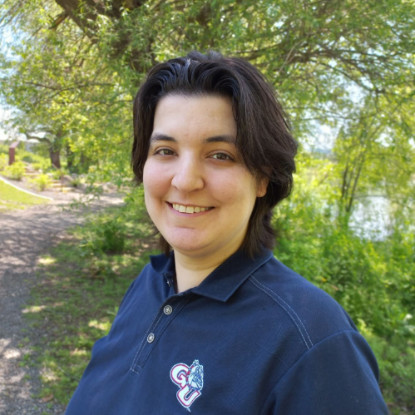I earned my undergraduate degree in chemistry from the University of San Diego in my home state of California. I traveled to the East Coast to earn my doctorate in molecular biophysics from the Johns Hopkins University School of Medicine and then spent time at the University of Pennsylvania, Perelman School of Medicine as a postdoctoral research associate. While living in Pennsylvania, I split my time between doing research and teaching General Chemistry at Lincoln University. My experimental training spans multiple disciplines, but is heavily rooted in biochemistry and biophysics and is inspired by my own undergraduate research experience. My passion in teaching, though, has always been chemistry. I especially love teaching lower division courses. I enjoy introducing students to the fundamental intricacies of chemistry and helping them potentially uncover their own passion for the subject.
Erickson, A., Rond, E., & Cravens, S. L. (Accepted/In press). Investigating the demineralisation of hydroxyapatite by kombucha and hard seltzer using atomic force microscopy. Biosurface and Biotribology.
https://doi.org/10.1049/bsb2.12088
The research done in the Cravens lab is inspired by a desire to understand life at a fundamental level, primarily through biophysical studies of DNA and sequence-specific DNA targeting molecules. Recently, I have expanded the scope of my lab to include an exploration of tooth decay using atomic force and confocal microscopy. My lab has 3 ongoing projects: 1) Exploring how chemical damage to artificial, catalytic DNAs (known as a DNAzymes) that were developed as an RNA-targeting therapeutic can limit their ability to function as disease mitigators; 2) Identifying and characterizing small molecule chalcones that are capable of serving as anti-bacterial and anti-tumor agents through DNA binding; 3) Studying the effects of popular beverage and food fads on tooth enamel erosion by analyzing calcium leaching and surface deterioration. Students in my lab will employ a variety of molecular biology, biochemistry, structural biology, and analytical chemistry techniques.

